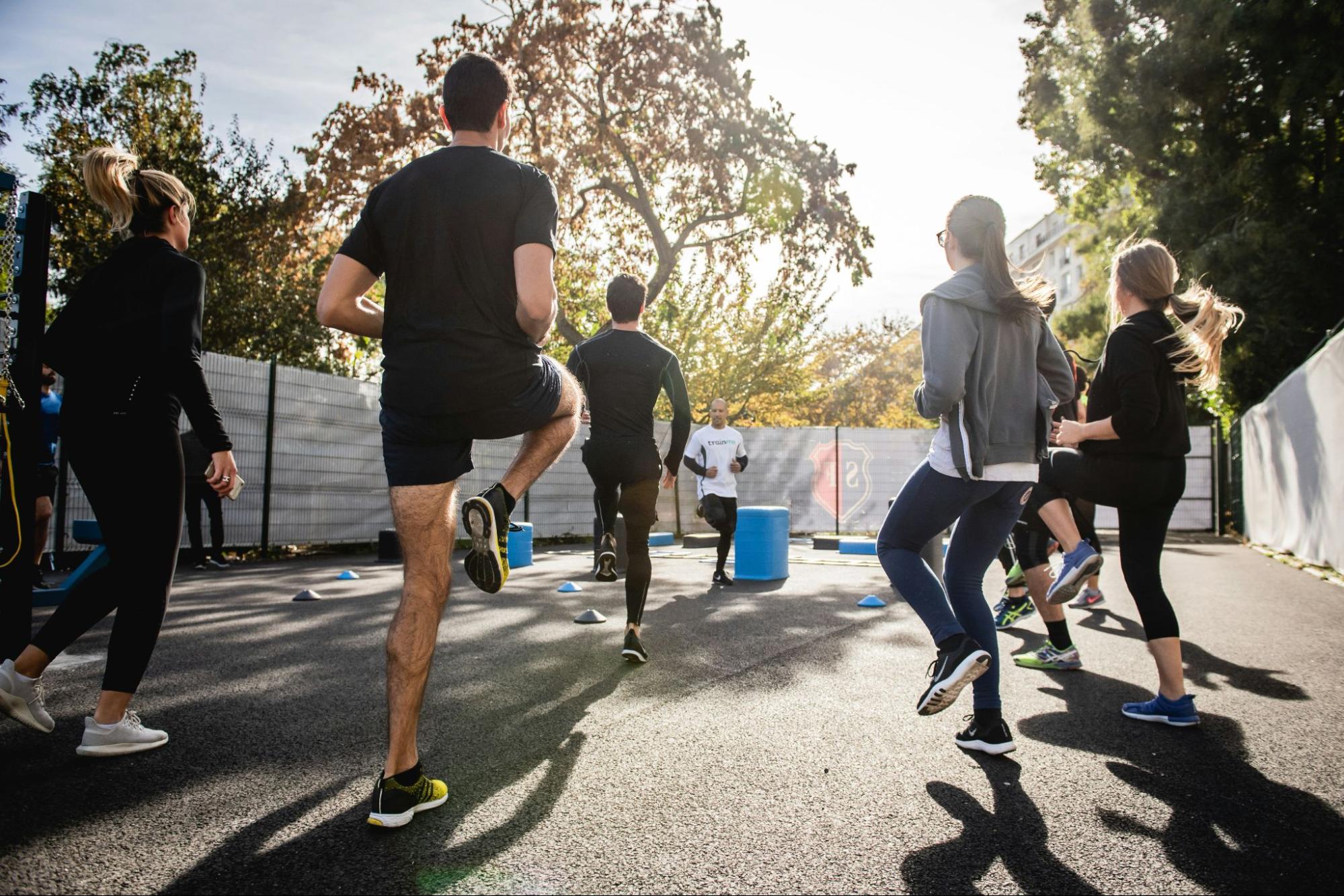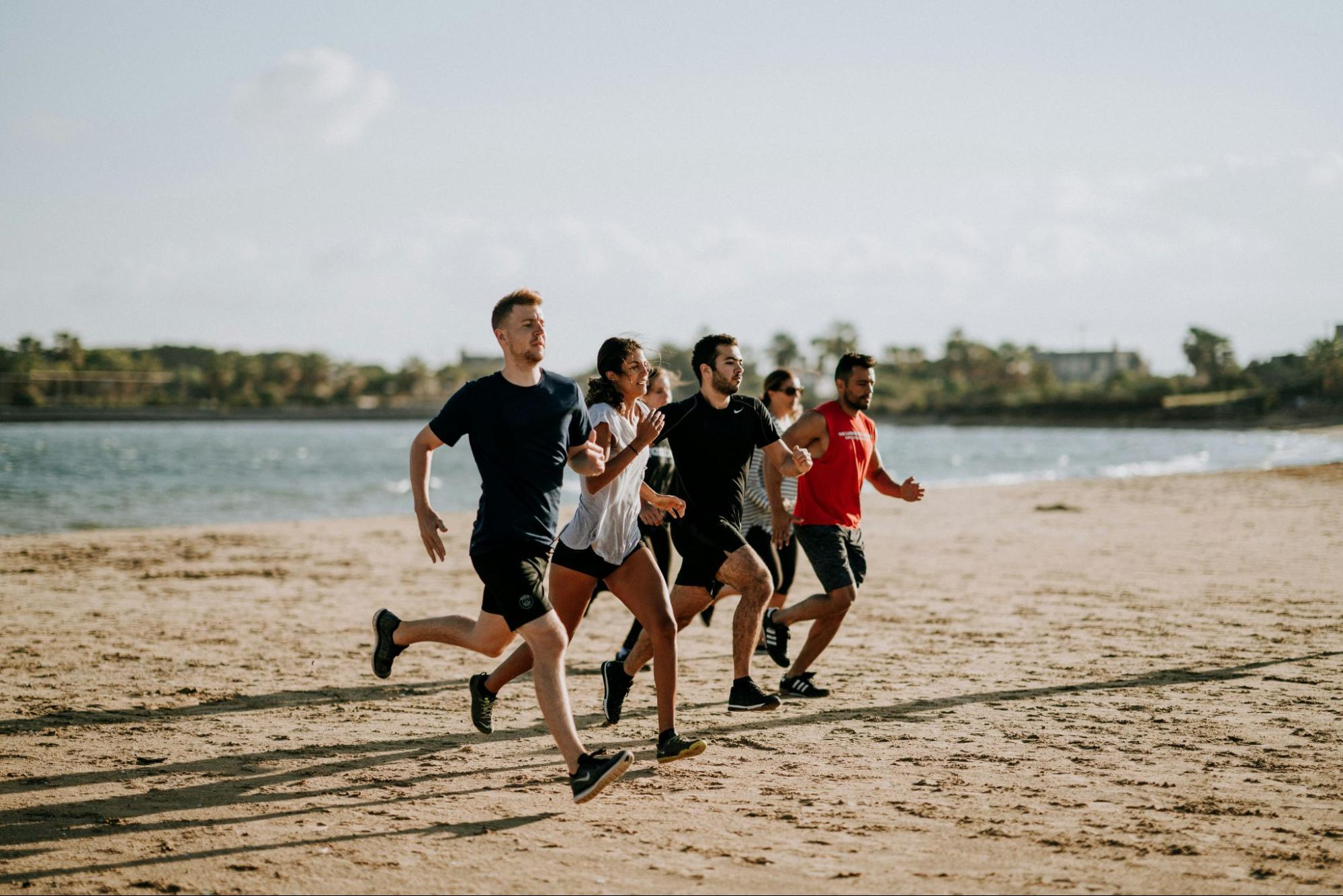CONTENTS
The Mind-Body Connection: Exercise For Mental Health
Our mental health is a vital part that affects the overall satisfaction we feel in life. Feeling overly stressed, anxious, or depressed often can hurt everything from our relationships to job performance.
Luckily, exercise is one of the best ways to improve mental health. The National Institute of Health says regular exercise helps lower stress and anxiety, treat depression, and boost mood effectively. This is especially true when you are on the road in an unfamiliar country with a different set of values and way of life.
Do you want to live a healthier and happier life? Let’s dive into this article as we share the best exercise for mental health with several attached benefits you should not miss.
How Does Exercise Improve Mental Health?
When we exercise, it triggers many positive effects in the body and brain. Endorphins, "feel good" chemicals, flood the system, causing the famous "runner's high." Levels of serotonin and dopamine also rise. These brain chemicals control our moods and motivation. More of them make people feel less depressed and anxious.

Our mind and body are deeply connected, and regular exercise has numerous benefits for mental well-being. Photo by Mor Shani on Unsplash
At the same time, exercise for mental health lowers cortisol, the main stress hormone. Too much cortisol from chronic stress harms us mentally and physically. Lowering cortisol helps us handle daily troubles better. Aerobic exercise even sparks neurogenesis - the growth of new brain cells. This keeps our brains healthy as we age.
Good workouts also improve sleep, which is critical for mental wellness. Exercise syncs the body clock and reduces muscle tension, allowing deeper, more restorative rest. In turn, better sleep enhances mood the next day. Group fitness classes provide social interaction, which research shows combats loneliness and isolation.
In short, our minds and bodies are connected. Making physical activity a priority lifts brain chemicals to build resilience against depression and anxiety.
Types of Exercise That Benefit Mental Health
While all forms of physical activity are useful, certain types seem particularly well-suited to strengthening mental state through their targeted effects:
1. Aerobic Exercise

Doing a bit of aerobic exercise with your fellow travellers is simply fun! Photo by Gabin Vallet on Unsplash
Engaging in an activity that raises your heart rate to the target zone for an extended period can yield aerobic benefits. Brisk walking is a gentle full-body exercise that requires no special equipment or facilities.
Regular walking for just 30 minutes per day has been linked to myriad psychological gains, such as reducing stress, anger, and sadness while lifting mood and self-esteem.
Meanwhile, jogging and running provide a vigorous cardio workout outdoors while releasing feel-good endorphins into the bloodstream. This can help diminish anxiety and lift one's spirits naturally.
Swimming is another exercise that we recommend for mental health. It provides a full-body workout without jarring muscles and bones, making it an ideal stress reliever.
2. Find Your Inner Zen On The Move

Experiencing the wonderful sensation of meditating under the warm morning sun. Photo by Jared Rice on Unsplash
In our fast-paced world, taking time each day for stillness and reflection is crucial. Practices blending physicality and meditation offer the perfect balance.
Traditional martial arts like tai chi advance mindfulness through soothing forms that nourish body and spirit. Their flowing motions, paired with deep breathing, induce tranquillity. Yoga, too, centres attention on each pose while releasing muscular tension.
These exercises for mental health strengthen clarity and focus alongside serenity. And if you are abroad for relaxation, the process can be better as you take advantage of stunning sights to relieve. Just spend at least 20-30 minutes after getting up; you have a stress-free mind to go outside.
There are many yoga retreats and centres around the world that you can make use of during your trip. Take Bali for example, as Yoga has its roots in Hinduism, thus the nation and this practice goes hand-in-hand.
3. Hike Your Way To Happiness

Trekking through beautiful natural landscapes does wonders for both physical and mental well-being. Photo by Ashim D’Silva on Unsplash
Conquering mountain summits while taking in panoramic views from the top lifts your mood and feel a sense of achievement during the challenging hike. Breathing in fresh air and appreciating nature's simplicity boosts happiness and improves motivation to return to daily routines refreshed.
The scenic views of beautiful national parks with lush green forests and exotic wildlife surrounded by diverse plants provide solace to the mind. Also, long nature walks through rainforests allow an escape from life's stresses into a peaceful world of authentic beauty.
4. Cycle Through History

Each discovered site stimulates imagination, relieving day-to-day tensions by mentally transporting elsewhere. Photo by Clem Onojeghuo on Unsplash
Nothing stimulates both the mind and body like exploring historic places by bicycle. You can wind your way through Florence’s charming streets or grand monuments to immerse yourself in the rich cultural landscapes.
Sharing insights with travelling companions enhances memory retention, too. The seamless blend of intellectual challenges and energising movement is ideal for cognitive health - far superior to aimless pounding.
5. Dance Your Way Around The World

Not only can you learn a new dance, but also make new friends. Photo by Omar Lopez on Unsplash
Learning local dance forms is an enjoyable way to immerse oneself in music traditions internationally while keeping fit.
Salsa classes in vibrant Havana, private tango lessons in romantic Buenos Aires, and communal belly dancing in the souks of Morocco connect travellers to the heartbeats of places through shared rhythmic expression.
Recommendations On Exercise For Mental Health
Exercise for mental health will provide optimal effect if you do it the right way. Here are some suggestions that you should consider before starting a routine:
1. Make Exercise a Daily Priority
Getting in 2.5 - 5 hours of moderate exercise per week, as experts suggest, means aiming for 20-30 minutes of activity per day. Treat movement like a daily essential - pencil it into your calendar if needed.
Brisk walking, swimming laps, an aerobics or dance class, even just putting music on while you clean can get your heart rate up. The key is making movement a consistent habit, not overexerting yourself with intense workouts.
2. Start Low, Go Slow
For beginners, even 5 minutes can lift mood. Build very gradually into longer durations. Remind yourself there are no strict rules - do what feels right for you. Creating any new habit requires patience and consistency over time.
3. Find Your Fit: Make Moving Fun

How about a running competition on the beach during your family holiday? Photo on Unsplash
Rigorous workouts are not necessarily more enjoyable or mood-enhancing. Seek activities making you feel good in the moment - hiking, dancing, gardening, whatever you fancy. Got a dog? Long walks benefit you both.
4. Use Exercise to Complement Other Treatments
For clinical conditions like depression or anxiety, physical activity powerfully augments medications and therapy. Stick to a regular regimen for maximum relief. Consider group classes for accountability and support. Every step counts toward mental wellness.
5. Don’t Slack Off Even When You Are Travelling
With all the new sights and delicious food, it's easy to let healthy habits fall by the wayside. Whenver you are on a leisure or business trip, try to pencil in short bursts of movement, which can have a massive impact on your mental well-being and overall travel experience.
It’s easier than you think: try to explore the city with a walking tour, or rent a bike and cruise along scenic routes. Pack comfortable walking trainer (a staple for any packing list) to start your day with a walk. A yoga mat is also wonderful for some on-the-spot practices right in your hotel room.
FAQs
1. Can Depression Be Cured By Exercise?
While exercise for mental health alone cannot cure depression, it is an important part of treatment for many people. Exercise has demonstrated comparable effectiveness to antidepressant medication in addressing mild to moderate depression. It works on the same brain mechanisms as antidepressants to ease symptoms.
The effects of exercise are thought to be caused by increased circulation of feel-good endorphins, improved sleep, and taking one's mind off rumination. Physical activity also boosts serotonin and dopamine levels.
2. What Type Of Exercise Is Best For Anxiety?
The best exercise for your mental health is one you’ll stick to and enjoy. Other than sleep and diet, the right exercise for the job should suit you both physically and mentally (and in the right amount).
According to Health, exercises that help with reducing anxiety include Cardio, Interval training, Nature walks, and Yoga. but that’s not all, here are some more options to consider:
- Aerobic exercise works well for many as it engages the body's innate fight-or-flight response in a healthy, controlled way.
- Brisk walking, swimming, running and dancing are ideal choices to steadily elevate the heartbeat.
- Tai Chi provides slower-paced full-body stretches combined with deep breathing techniques, quieting both mind and muscles.
- Strength training builds confidence by empowering the limbs with modest weights over time.
- Outdoor activities like cycling afford respite amid serene scenery and fresh air.
- Martial arts offer structured physicality plus self-defence training that fosters assurance.
- Team sports cultivate camaraderie to combat loneliness.
3. What Are Some Low-Impact Exercises Good For Mental Health?
Walking and running remains the best exercise for mental health as it requires nothing but quality shoes and can easily fit into any schedule through brief strolls outdoors. Nature's beauty further lifts the mood and reduces anxiety.
Swimming also eases exercise pressures on the body. Gentle water aerobics, swimming laps, or water walking against resistance build strength with negligible joint strain.
4. How Soon Can I See Improvements In Mental Well-Being Through Exercise?
It may come as a surprise, but you can begin reaping the rewards of exercise for your mental health within just a couple of months of starting a routine. Within the initial 10–12 weeks, you may feel reduced anxiety levels on days you work out, more stable moods and improved focus.
Final Thoughts
In conclusion, making exercise for mental health a regular part of your lifestyle is one of the most impactful steps to support mental wellness. While commitment proves vital over time, even modest daily increases yield profoundly positive transformations inside and out.
If you discover value in this article, kindly express your thoughts in the comments section to inform us. Also, remember to give it a thumbs up and share it with others. Thank you for taking the time to read!
Ha Ngan




Laisser un commentaire